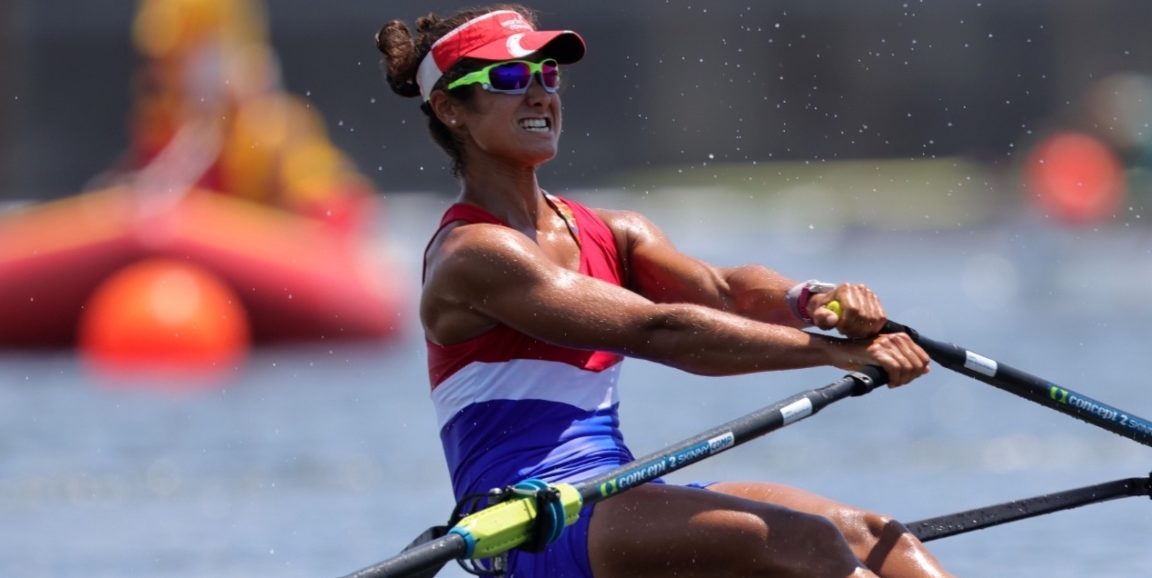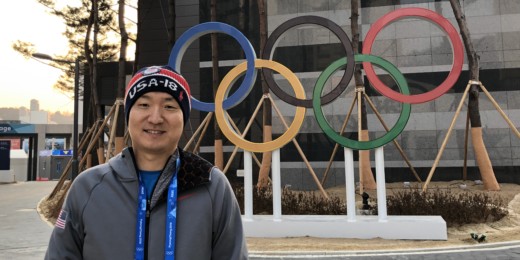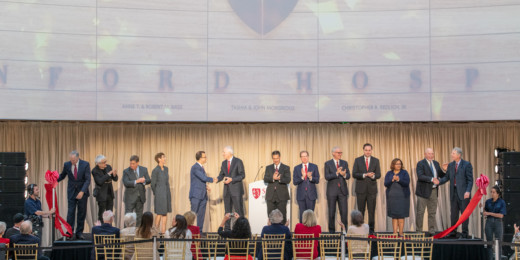As a 5-foot-10 high schooler in San Juan, Puerto Rico, Veronica Toro Arana was a middle blocker in volleyball -- a position typically reserved for the tallest member of the team.
She planned to play in college, but the volleyball team at the Massachusetts Institute of Technology dwarfed her. "I was tall in Puerto Rico," she said, "but not at MIT." She sought out another sport and landed in lightweight rowing, to which her height and weight were perfectly suited.
The switch launched a yearslong devotion to rowing in college and for international competitions, eventually garnering her a spot in the Tokyo Olympics, where she was the first female rower to represent Puerto Rico.
"It was an amazing experience," she said, "just being there in the Olympic Village with the best athletes in the world and getting to know people from so many different countries. I was really excited to participate in the opening ceremony."
At MIT, Toro Arana competed in four- and eight-women boats, eventually switching to the open-weight class after putting on muscle. Back home in Puerto Rico during school breaks, she rowed with a club, where she tried out single sculling.
"I flipped a bunch of times, but it was fine," she said. "The water's warm."
Olympics in sight
She realized she had a shot at the Olympics as a single sculler -- Puerto Rico wasn't able to field a full boat -- so she took up solo rowing. In 2016, she began medical school at Stanford, training every morning before classes began.
"I liked being out there, on the water, with nature," she said. "I loved going out on the bay and watching the sun rise."
During the 2018-2019 school year, she paused her classwork to conduct research into pulmonary valve replacement in patients with tetralogy of Fallot, a heart defect. Because the work was computer-based, she relocated to Miami, where she trained. She returned to Stanford to start clinical rotations, then took a leave of absence during the 2020-2021 year to prepare for the Olympics, working with coaches in Miami and in Italy.
"I really appreciate the importance that Stanford gives to athletics and the flexibility it provides students," she said.
Her decision paid off when she competed in March at the qualifying event in Rio de Janeiro, earning one of five spots reserved for single-sculling women in the Americas.
"I pursued it to this level because I wanted to represent Puerto Rico in a sport that no Puerto Rican woman had competed in before," she said.
The quarterfinals
At the Olympics, Toro Arana made it to the quarterfinals in the women's single-scull event, a 2,000-meter race in Tokyo Bay. "As an athlete, you always want to do better, but I'm still happy with how I did," she said. She placed 22nd out of 32 competitors.
She returns to the Stanford campus and her clinical rotations this fall. "Medical school is my top priority now," she said. She hopes to pursue cardiothoracic surgery -- a competitive specialty -- so she doesn't expect to have much opportunity to train for several years.
She might compete on a team boat in the Central American and Caribbean Games in El Salvador in 2023 if the timing works with her pursuit of a medical career, she said. She also has her sights set on developing a park where more people can take up rowing back home. "I want to see the sport grow on the island," she said.
Regardless, she plans to keep rowing for fun.
"When you row in a single, it's very quiet, and there's this whole thing about becoming one with the boat," she said. "It's a combination of maximum exertion and beautiful technique. You glide on the water."
Photo courtesy of the Puerto Rico Olympic Committee






